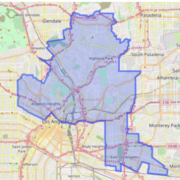With the erratic weather changes experienced in the country, it is important to keep a healthy body and lifestyle to avoid any sickness. And since the rainy season has begun a lot are experiencing mild sickness like colds and coughs.
Endowed with abundant natural resources, the Philippines have been known to have a variety of medicinal plants. Back in the days, our early ancestors have used herbal plants to cure sickness and this practice has been passed on throughout the years. But with all the innovation in the field of medicine, some of us have forgotten the natural treatments that can be found and grown in our backyards. Due to high costs of conventional medicines and treatments, nowadays many Filipinos turn to these natural remedies as an alternative to their therapy. Some simply prefer taking natural remedies because of its subtle effects than the conventional medicines. The Department of Health (DOH) has approved many herbal plants that are proven effective in treating particular ailments. Here are a few of the common cold busters to turn to this season:
Lagundi is one of the top 10 medicinal plants approved by the DOH. It is a large shrub native to the Philippines and well-known in other countries. Its leaves are generally used to help relieve respiratory problems and cure colds and cough. Medical professionals consider lagundi to help cure asthma. In a hot pot, place leaves and bring to boil for a few minutes.
Drinking calamansi is native to the Philippine Islands. Its rich vitamin C content helps increase the body’s resistance to disease. Warm calamansi juice serves as a laxative and helps loosen phlegm and relieve colds. It can also be used as a mouthwash since its antibacterial property help freshen breath. Its natural extract is widely used as a bleaching agent, body cleanser and deodorant.
Another natural cough remedy found in the Philippines is alagaw. Place leaves in hot water and let it boil. Its extracts help loosen phlegm and relieve coughs. It also helps in healing wounds caused by ticks and fleas.
Aside from lagundi, sambong is another medicinal plant endorsed by the DOH. Its leaves and flowering tops are boiled in hot water; drinking the tea helps relieve sore throat, and treat colds.
With its minty flavor, the oregano leaves can be used as a treatment for respiratory ailments. Boil a cup of leaves in water and breath in the steam to help relieve sinuses. In the early times, it used as an antiseptic for cuts and bruises too.
When ginger is cut into thin strips and boiled with water, it can help relieve nose and throat congestion. In the Philippines, ginger tea is widely known as salabat.
These are just a few of the many herbal remedies our country is endowed with. Consider having a few of these in your backyard or kitchen for instant remedy. However, it is also important to keep in mind that all these should be taken with caution and proper advice is necessary from a medical professional.
(Sources: http://www.medicalhealthguide.com/philippineherbalmedicine.htm and http://plantfruitstreesmedicineherbal.blogspot.com/2012/09/alagaw-alternative-medicine-supplements.html)
***
Mango Tours is a provider of quality, affordable and convenient travel services that include low-priced airline tickets, customized Philippine and International Tour Packages, Cruises, Land Transfers, Passport and Visa Concerns. It is the #1 producer of reliable travel services particularly when it comes to Philippine travel arrangements to the Filipino-American community in the US Mango Tours is able to provide its customers with a number of travel options at affordable rates because of its consolidator contracts with over 11 airlines. Book your travel bookings with Mango Tours by calling its 24/7 US toll-free number at 1-866-2-MANILA (1-866-2-626452). Visit www.mangotours.com to know more about its latest promos and travel offers.







